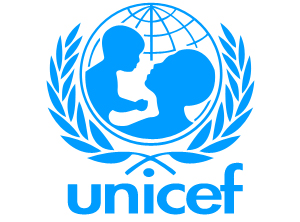UNICEF calls for release of child soldiers in Congo
 Geneva - The ongoing violence in the Democratic Republic of Congo, which has caused the displacement of over 250,000 people, has put children at particular risk of recruitment into armed groups, the UN's Children Fund said Wednesday.
Geneva - The ongoing violence in the Democratic Republic of Congo, which has caused the displacement of over 250,000 people, has put children at particular risk of recruitment into armed groups, the UN's Children Fund said Wednesday.
UNICEF called on "all armed groups to end the recruitment and use of children," Pierrette Vu Thi, the agency's chief in the DR Congo, said in a statement. They must "immediately release the children within their ranks."
The children are also prone to sexual exploitation and forced labour, particularly when they are separated from their families and unable to attend school, the agency said, warning that some former child soldiers were being re-recruited by rebels.
In the past four years, some 10,000 children have been released and reintegrated into their communities.
Since September, the Ugandan Lord's Resistance Army (LRA) has abducted some 200 children in the Dungu district, UNICEF said, adding that it was working with 31 of these youngsters who managed to escape.
The Catholic aid group Caritas accused the LRA this week of massacring at least 400 people over Christmas.
The group's attacks have ramped up since the Congolese, Ugandan and southern Sudanese armies mid-December began ground and aerial attacks on LRA bases in the country.
Women and girls, even those in displaced persons camps, still faced the risk of abuse and sexual violence.
Two girls who participated in a UNICEF programme were attacked by soldiers in the Kibati refugee camp, who then tried to rape them. One was shot dead and the other fled.
Vu Thi said there needed to be "a zero tolerance position toward sexual exploitation and abuse" by the government, armed groups and community leaders.
Fighting during the last decade in the DR Congo is estimated to have killed over 5 million people and left over a million people internally displaced or refugees in neighboring countries.
The latest outbreak of violence began over the summer, when Tutsi rebels loyal to General Laurent Nkunda began fighting with government forces in the Kivu region. (dpa)